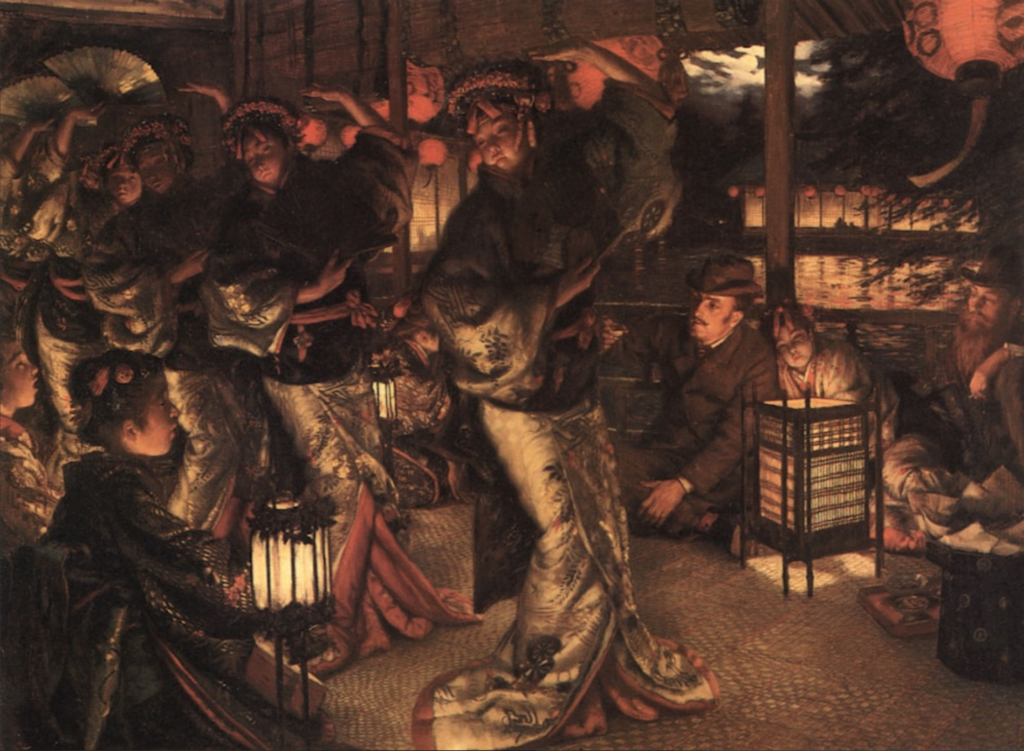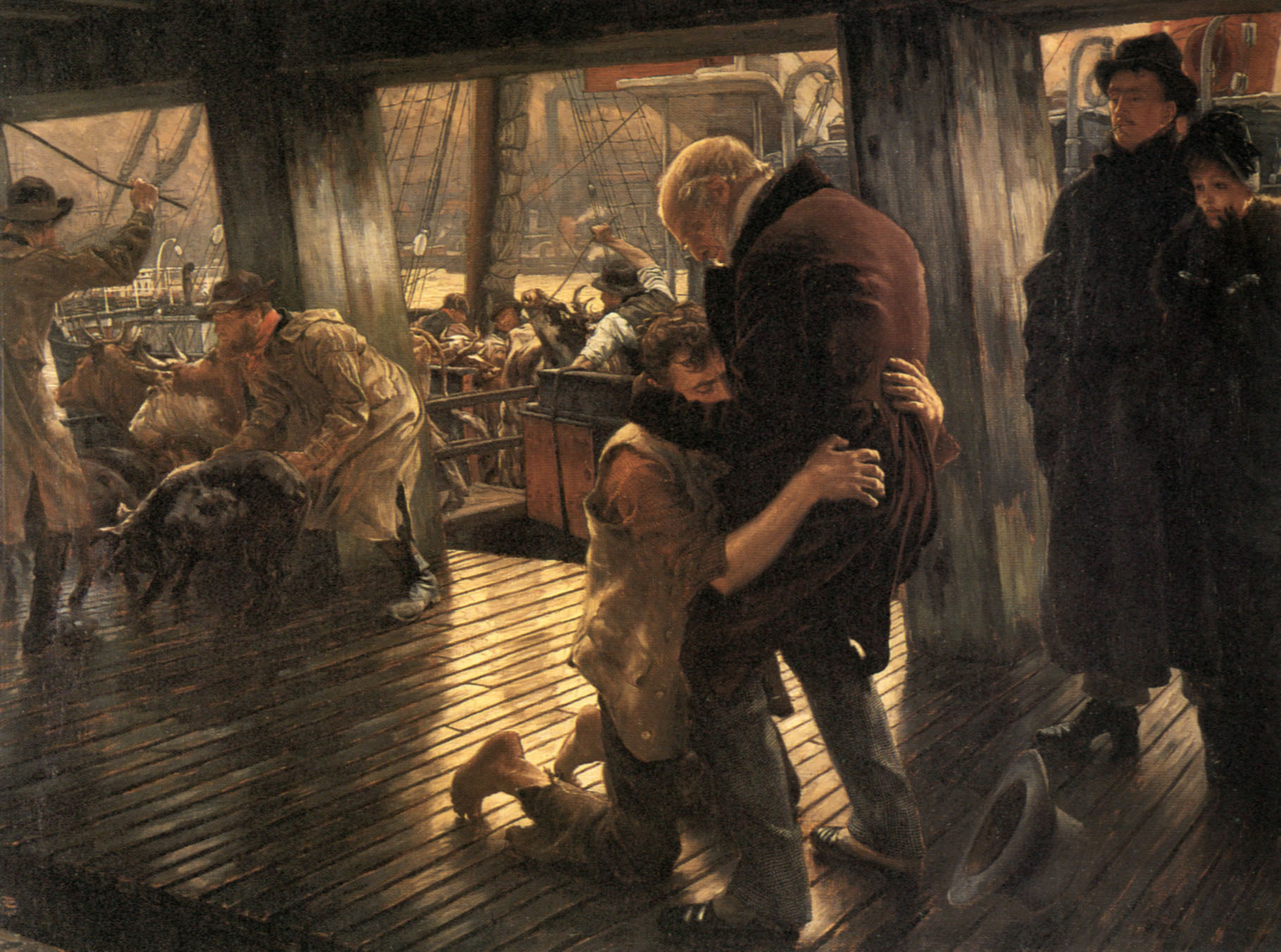According to Google auto-complete the parable of the prodigal son is the 4th most popular behind the sower, talents and lost sheep. The last of which is basically part of the prodigal son cycle. But no doubt it is a popular parable inside and outside of the church. I am not a big fan of attempts to find something new in everything in order to distinguish persons or academic exercises. But we have created a new problem connected to this parable which needs an common sense solution. Common sense tends to be less prevalent than it ought in a culture with so much sin and so little toleration for truth. So here is my attempt.

The Prodigal Son in Modern Life – The Departure, James Tissot c.1880
The popular title of the parable has come to refer to the wayward, wasteful, reckless, lavish son, the prodigal. Recent attempts seem to be directed towards the point that there was another character involved. Another character who was in fact more the motive for the parable in the first place. We are told that parables are told, not to reveal, but often to hide, Matthew 13:10-17. But those who have spiritual ears of faith are granted understanding. That is not without it’s diligent work, of course. So, yes the two characters in the story are important. But we tend to try categorizing all people as one of the two.

The Prodigal Son in Modern Life In Foreign Climes – James Tissot, c.1882
The Prodigal son is the black sheep, the rebel, the hippie dissenter, he thinks for himself and is always coming up with seemingly provocative points to challenge the establishment. He has no toleration for ‘the man’. But throws off dusty tradition and follows his own organic bohemian path. I’m not sure we can connect to Jesus’ meaning in understanding this person today. Because we have made him into a sort of hero. Since the tradition of rebellion begun in the French Revolution, this type is honored and revered. If not blatantly then subtly. He is the only one capable of creativity or invention. Our culture doesn’t really have anyone that we dislike completely. The closest thing I can come up with is the judgemental old fashioned Christian. That is about the only type our culture has no use for. He is the lowest of the low, the one person deserving of ridicule, judgement and hate. Or perhaps we might call him the faithful son.
This is the second type, he is the son who stayed home. He diligently put his head down, shoulder to the plow and gets the work done. Year after year he does all that his father asks, he is faithful and reliable. He keeps things running, all the servants report to him just as they would the father. His father would trust him with anything. But often simply by his over achieving he makes everyone around him feel inferior. He meets a standard that most people can’t. Today we don’t have any use for this person. We just call him arrogant and discount his discipline and work ethic. We call him arrogant and prideful.

The Prodigal Son in Modern Life: The Return – James Tissot, 1882
The problem is that we see these as the only two options in life. Well perhaps we exempt ourselves. But we like to categorize everyone else as either a bohemian artist or a stuffy arrogant jerk. As we look at raising our children there is a sense in which we almost want them to leave home and have some rebellion, we want a prodigal story for them. Then they can come back home have a ‘real’ conversion to Christ, with some dramatic events and lots of tears and hugs. They just have to sew some wild oats of liberalism, then they can grow up and have a conservative family. We certainly don’t want to approach the edge of legalism. We don’t want to ‘limit’ our kids or stifle their creativity. And of course heaven forbid we rase a judger.
But there are more than these two options. Christ was here attacking the religious leaders for their blindness. They had an external system which was difficult but achievable. They could do it. But the point was not to be the best at the system, the point is to populate the kingdom of heaven. If you really love your fellow man then you rejoice when someone is spared eternal hellfire. Sure he may not have been towing the mark all these years. But if he repents and comes back it is a glorious occasion. On the other hand we shouldn’t discount the importance of the hard work the religious leaders did. We do need a complex system, because we are wayward children. We need to be kept on task. We need liturgy and routine to keep us on the straight and narrow. But we don’t have to fall into judgemental legalism. We can raise kids who are creative, artistic and compassionate and also disciplined and purposeful. Rebellion is not necessary, we can build from generation to generation, as many have done. Raising children who respect our tradition and embellish it with vibrant youth. This is one of the many paradoxes embedded in this world by our creator. Old and young contending together to the benefit of both. Artist and engineer both members of one body working it out and creating a result that seems impossible, certainly beyond human logic.

The Prodigal Son In Modern Life, The Fatted Calf – James Tissot, c.1882
